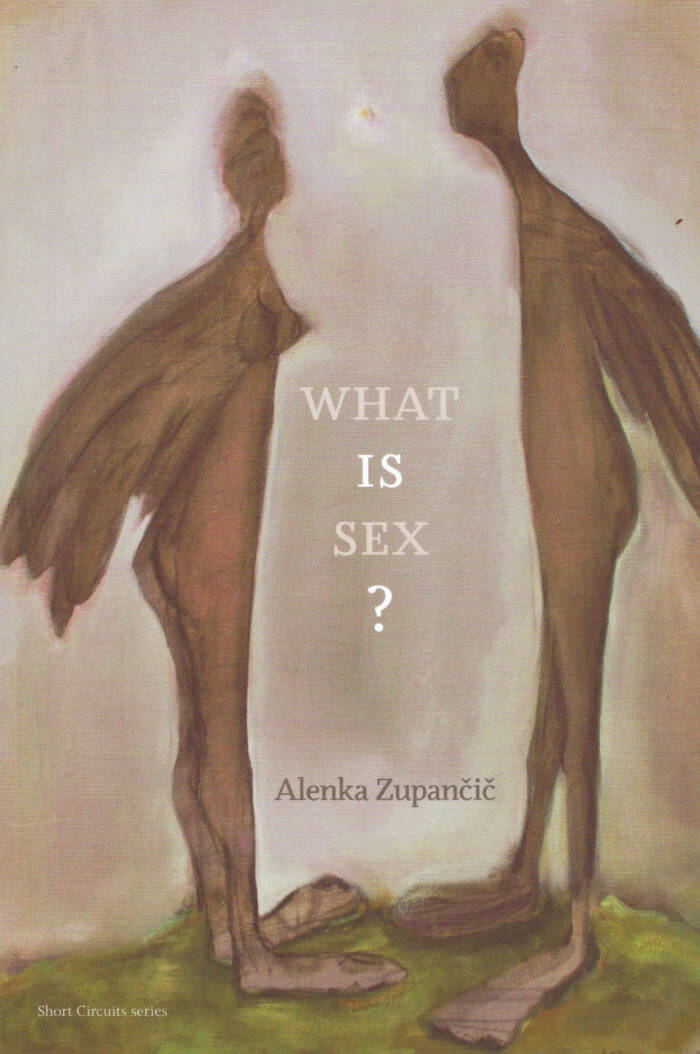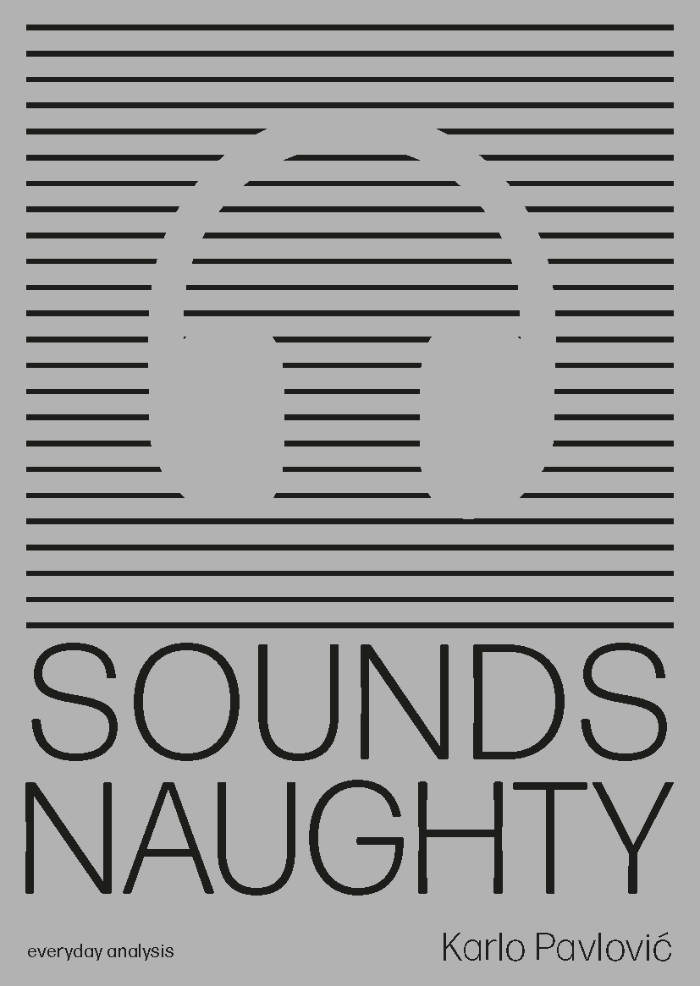Alenka Zupančič
Alenka Zupančič

Disavowal
This book argues that the psychoanalytic concept of disavowal best renders the structure underlying our contemporary social response to traumatic and disturbing events, from climate change to unsettling tectonic shifts in our social tissue. Unlike denialism and negation, disavowal functions by fully acknowledging what we disavow. Zupancic contends that disavowal, which sustains some belief by means of ardently proclaiming the knowledge of the opposite, is becoming a predominant feature of our social and political life. She also shows how the libidinal economy of disavowal is a key element of capitalist economy.
The concept of fetishistic disavowal already exposes the objectified side of the mechanism of the disavowal, which follows the general formula: I know well, but all the same, the object-fetish allows me to disregard this knowledge. Zupancic adds another twist by showing how, in the prevailing structure of disavowal today, the mere act of declaring that we know becomes itself an object-fetish by which we intercept the reality of that very knowledge. This perverse deployment of knowledge deprives it of any reality.
This structure of disavowal can be found not only in the more extreme and dramatic cases of conspiracy theories and re-emerging magical thinking, but even more so in the supposedly sober continuation of business as usual, combined with the call to adapt to the new reality. To disrupt this social embedding of disavowal, it is not enough to change the way we think: things need to change, and hence the way they think for us.

Qu'est-ce que le sexe ?
La sexualité comme un problème proprement philosophique de la psychanalyse.
La satisfaction de parler contient en soi une clé de la satisfaction sexuelle (et non l'inverse) – une clé de la sexualité et de ses propres contradictions. Alenka Zupančič aborde la question de la sexualité comme un problème proprement philosophique de la psychanalyse – celle de Freud et de Lacan – et non celle des praticiens cliniciens tels que décrits par Lacan « orthopédistes de l'inconscient ». Que se passe-t-il, comme l'affirme Lacan, si nous pouvons obtenir exactement la même satisfaction que le sexe par la parole, l'écriture, la peinture, la prière ou autres activités ? Il ne s'agit pas d'expliquer la satisfaction que procure la parole en indiquant son origine sexuelle, mais bien de souligner que la satisfaction de parler est elle-même sexuelle.
Alenka Zupančič soutient que la sexualité est à la limite d'un « circuit court » entre ontologie et épistémologie. La sexualité et le savoir sont structurés autour d'une négativité fondamentale qui les unit au point de l'inconscient. L'inconscient (en tant que lien avec la sexualité) est le concept d'un lien inhérent entre l'être et la connaissance dans leur négativité même.
Alenka Zupančič est une philosophe lacanienne, spécialiste renommée de Nietzsche, professeure à l'European Graduate School / EGS et à l'Université de Nova Gorica, Slovénie. Elle est également research advisor et professeure à l'Institut de philosophie du Centre de recherche de l'Académie slovène des Sciences et des Arts. Avec Slavoj Žižek et Mladen Dolar, Alenka Zupančič est l'une des figures les plus incontournables de l'Ecole de psychanalyse théorique de Ljubljana dont les travaux s'intéressent aux relations entre sexualité, ontologie et inconscient, à la critique de la théorie du sujet et à l'exploration théorique du concept lacanien du Réel.

Let Them Rot
What is the relation between family misfortune and desire? Why must we bury the dead? What is to come for those unburied? How to distinguish the endless stream of graphic violence from violence that goes straight to the bone? How does language make up not only the law, but also unwritten laws?
In Let Them Rot Alenka Zupančič takes up the ancient figure of Antigone and finds a blueprint for the politics of desire. Not desire as consumption, enjoying what is offered, but desire’s oblivion to what came before. Such politics says: “No, this world must end and I will be the embodiment of that end.” This is not self-satisfied destruction for destruction’s sake; it is existence with consequences beyond the predictable. Zupančič asks: “Why desire?” And this question of desire, which may be the only question, takes the form of a no that is also an “I".
"Zupančič’s ideas are fresh, as if they hailed from some open air beyond the clutter of current theoretical quarrels. This brilliant account of Sophocles’s Antigone breaks new ground for philosophy, psychoanalysis, and political and feminist theory." — Joan Copjec, Brown University
"Writing my book on Antigone, I thought: “There we go, the subject is closed—let’s go to sleep.” And then along came Zupančič with her take and compelled me to rethink everything I did. In other words—and this is difficult for me to say—she is better than me here." — Slavoj Žižek
Alenka Zupančič is a Slovenian philosopher and social theorist. She is a professor of philosophy and psychoanalysis at the European Graduate School and a researcher at the Institute of Philosophy at the Slovene Academy of Sciences and Arts. She is the author of many books, including What Is Sex? (MIT Press, 2017), The Odd One In: On Comedy(MIT Press, 2008), and Ethics of the Real: Kant and Lacan (Verso, 2000).

Let Them Rot: Antigone's Parallax
A provocative, highly accessible journey to the heart of Sophocles' Antigone elucidating why it keeps resurfacing as a central text of Western thought and Western culture.
"Zupančič writes with rare lucidity and patience for exposition, helped along by a talent for turning peculiar phrases or seemingly senseless jokes into full-blown insights. Her ideas are fresh, as if they hailed from some open air beyond the clutter of current theoretical quarrels. This brilliant account of Antigone breaks new ground for philosophy, psychoanalysis, and political and feminist theory."—Joan Copjec, Brown University
There is probably no classical text that has inspired more interpretation, critical attention, and creative response than Sophocles' A ntigone. What is it about the figure of Antigone that keeps haunting us? To what kind of always contemporary contradiction does the need, the urge to reread and reimagine Antigone—in all kinds of contexts and languages—correspond?
The violence in Antigone is the opposite of "graphic" as we have come to know it in movies and in the media; rather, it is sharp and piercing, it goes straight to the bone. It is the violence of language, the violence of principles, the violence of desire, the violence of subjectivity. From this question of violence, the author turns to questions of funerary rites and of the relation of Antigone's singularizing claims to her universal appeal. What, Zupančič asks, does this particular (Oedipal) family's misfortune, of which Antigone chooses to be the guardian, share with the general condition of humanity? This forces us to confront the seemingly self-evident question: "What is incest?"
Let Them Rot is Alenka Zupančič's absorbing guided tour of the philosophical and psychoanalytic issues arising from the Theban trilogy. Her original and surprising account illuminates the play's ongoing relevance and invites a wide readership to become captivated by its themes.
Alenka Zupančič is Professor of Philosophy and Psychoanalysis at the European Graduate School and a researcher at the Institute of Philosophy at the Slovene Academy of Sciences and Arts. Her books include What IS Sex?, The Odd One In: On Comedy, and Ethics of the Real.

What Is Sex?
Why sexuality is at the point of a "short circuit" between ontology and epistemology.
Consider sublimation, conventionally understood as a substitute satisfaction for missing sexual satisfaction. But what if, as Lacan claims, we can get exactly the same satisfaction that we get from sex from talking (or writing, painting, praying, or other activities)? The point is not to explain the satisfaction from talking by pointing to its sexual origin, but that the satisfaction from talking is itself sexual. The satisfaction from talking contains a key to sexual satisfaction (and not the other way around), even a key to sexuality itself and its inherent contradictions. The Lacanian perspective would make the answer to the simple-seeming question, "What is sex?" rather more complex. In this volume in the Short Circuits series, Alenka Zupančič approaches the question from just this perspective, considering sexuality a properly philosophical problem for psychoanalysis; and by psychoanalysis, she means that of Freud and Lacan, not that of the kind of clinician practitioners called by Lacan "orthopedists of the unconscious."
Zupančič argues that sexuality is at the point of a "short circuit" between ontology and epistemology. Sexuality and knowledge are structured around a fundamental negativity, which unites them at the point of the unconscious. The unconscious (as linked to sexuality) is the concept of an inherent link between being and knowledge in their very negativity.
And more

Sounds Naughty
In this psychoanalytic pamphlet, Croatian philosopher Karlo Pavlović analyses the perversions of the day. Considering the topic of ASMR, a key example of what he calls the generalised deployment of subtle pornography, of depictions of sexuality "in gloves", he argues that society today should be understood through the blue balls phenomenon. This concept, developed playfully by Pavlović, explains that we are all perverts taking the logic of the drive to its extreme; if the whole point of the drive is not to attain its object, but rather, to circle around it, the perverse subject (as the subject of the present times) has, in fact, no problems with this whatsoever.
Karlo Pavlović is completing his PhD in Philosophy at The University of Ljubljana, supervised by Alenka Zupančič.

Spike #71 – Couples
For the latest Spike – #71: Couples—we're seeing double. This one is dedicated to partnerships in life, love, law, and labour. Whether you're a serial monogamist, married to your job, or sublimating your crushy feelings into all that you create, it's tough to deny the role that romance—or its absence—plays in shaping our subjectivities.
Might coupling be key to seeing beyond the self, opening us up to a more expansive, collaborative (co)existence? And do relationship breakdowns parallel wider social strife? Can the dusty old dyad be reconceived as radical? What happens when art-world couples blend business and pleasure?
Curl up with your soul mate—or settle into singledom—and grab a copy to read about the uses of love beyond love; the motivation posed by muses and rivals; psychoanalytic takes on partners' promises; along with artist-couples, curatorial duos, rom-com heroes, spectres, fembots, and beyond.
With Chris Kraus, Asa Seresin, Whitney Mallett, Alenka Zupančič, Johanna Hedva, Sam Kriss, Calla Henkel & Max Pitegoff, Genesis & Lady Jaye Breyer P-Orridge, Darian Leader & Jamieson Webster, Eva & Franco Mattes, Tea Hacic-Vlahovic, and many more.
Founded by the artist Rita Vitorelli in 2004, Spike (Spike Art Quarterly) is a quarterly magazine on contemporary art published in English which aims at sustaining a vigorous, independent, and meaningful art criticism. At the heart of each issue are feature essays by leading critics and curators on artists making work that plays a significant role in current debates. Situated between art theory and practice and ranging far beyond its editorial base in Vienna and Berlin, Spike is both rigorously academic and stylishly essayistic. Spike's renowned pool of contributing writers, artists, collectors and gallerists observe and reflect on contemporary art and analyse international developments in contemporary culture, offering its readers both intimacy and immediacy through an unusually open editorial approach that is not afraid of controversy and provocation.

What The Fire Sees
A collection of anti-capitalist poetry, philosophy, cultural analysis, legal studies, manifesto and critique spanning 1996 to the present by Alenka Zupančič, Alexander Kluge, Amy Ireland, Anne Boyer, Aurelia Guo, Bini Adamczak, Carolyn Lazard, Chi Chi Shi, Denis Ekpo, Feminist Judgments Project, Gili Tal, Houria Bouteldja, Huw Lemmey, Keziah Craven, Marina Vishmidt, Nat Raha, Sarah Lamble, Teflon and Vanessa Place.
Divided we fall, but where do we land? This collection explores some of the grounds on which thinking and writing can begin again.
– Sadie Plant